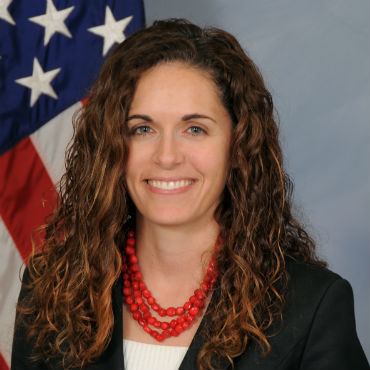DIUx moving forward in Austin as Congress tightens leash
The final FY 2017 defense bill restricts funding for DIUx until it provides a comprehensive report to Congress. The Austin efforts, however, could address some congressional concerns.

Christy Abaizaid, formerly deputy assistant secretary of defense for Afghanistan, Pakistan and Central Asia, leads the Austin efforts of the DOD innovation hub DIUx.
AUSTIN, TEXAS -- The Defense Innovation Unit Experimental, which has faced opposition from a number of members of Congress, will have to sing for its supper under terms included in the 2017 National Defense Authorization Act conference report.
The compromise bill that will go before the House and Senate for final approval restricts DIUx from using a portion of its funds until the secretary of Defense provides a detailed report to Congress about the mission, structure, staffing and other technical details of DIUx operations and objectives.
Until Congress is satisfied, DIUx can spend only 75 percent of its authorized operational funds and 25 percent of its research, development and prototyping funds. Similar language had been included in earlier versions of the NDAA.
The notes to the conference report state, "the conferees are concerned that investments made by DIUx to-date were not focused on rapid delivery of much needed game-changing technologies. Additionally, DIUx's customer base is not as diverse as expected and includes organizations, such U.S. Special Operations Command, with their own acquisition authority and entity established to leverage innovation."
"Nor do the conferees believe that the Department has postured DIUx to be successful in the innovation ecosystem with partners across the Department," the notes continue, "finding ways to multiply the effectiveness and networking potential of DIUx by leveraging the personnel, expertise, authorities, and resources of existing successful research, development, innovation, and tech transfer mechanisms."
Congress is seeking explanations from Pentagon officials as to how DIUx will coordinate or deconflict with the activities of other rapid acquisition entities and programs, such as the Small Business Innovation Research Program, In-Q-Tel, the Defense Advanced Research Projects Agency, and DOD labs.
Secretary of Defense Ash Carter launched DIUx in late 2015. The program struggled out of the gates, which led to a substantial overhaul and "DIUx 2.0" in the spring of 2016. Since then, members of Congress have continued to express reservations about the program.
Maj. Roger Cabiness, a Pentagon public affairs officer, said DOD has not had a chance to assess the DIUx provisions of the NDAA. "We continue to review the NDAA and will work with Congress to provide our views at the appropriate time," he told FCW.
As details of NDAA were coming out, FCW met with DIUx Austin presence lead, former deputy assistant secretary of defense Christy Abizaid to discuss the status of operations since the Austin presence was launched in September.
Unlike DIUx Silicon Valley and Boston, Austin is not a formal office, and Abizaid operates more as a forward-deployed asset who is mapping the technology and military ecosystems in Austin and Texas more broadly.
"More important than me is the reserve presence that we're really trying to pioneer here in Austin," Abizaid said.
DIUx Austin is building a cadre of National Guard and Reserve troops who are already tech entrepreneurs or have expertise from their civilian or military careers. It's something DIUx hopes will become more of a formal model going forward.
"We want to find people that are of the ecosystem we inhabit…and use them to help us bridge the gap and understand what's happening in both worlds," explained Abizaid.
She said that currently there are Air Force, Marine and Navy Reservists as well as members of the Texas National Guard and Mississippi Air National Guard on the DIUx Austin roster who can be tapped to work on specific projects going forward.
One of the concerns Congress raised in the NDAA is that DIUx to this point has not reached out to enough DOD components and sufficiently learned the needs of the customer base. That is one of the key mission areas of DIUx Austin.
Abizaid has met with the Texas National Guard based in Austin and has visited Ft. Hood. She said that Ft. Bliss and the 24th and 25th Air Force in San Antonio are also potential customers she intends to meet.
Equally important to understanding the military customer base and its needs is learning what the tech sector has to offer.
"What we see in Austin is that there is a lot happening across a spectrum of technologies," Abizaid said. "And what is incumbent upon us in our mission here is to know what's happening, highlight those opportunities so we can be opportunistic about the tentacles in the ecosystem to help the problems that come our way from the defense side."
"What we've found in Austin and Texas writ large is a really warm welcome to the defense mission," she added. "The kinds of hard problems that we bring are the kinds of things that a place Austin hasn't had to wrestle with but is very interested in learning more about."
Abizaid said that DIUx Austin is still very much in stand-up mode, and she expects to forge ahead through the uncertainty that lies ahead with the political transition and the finalization of the NDAA.





